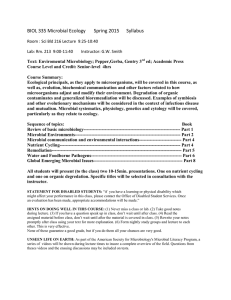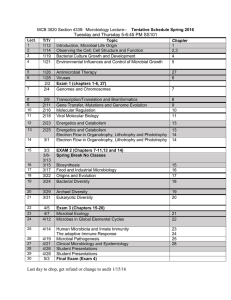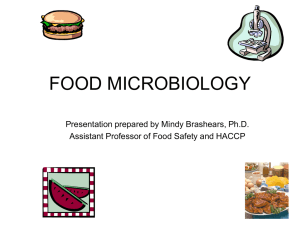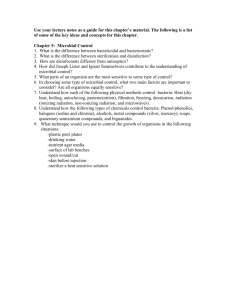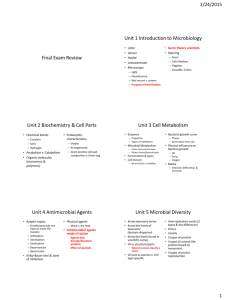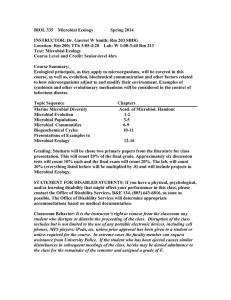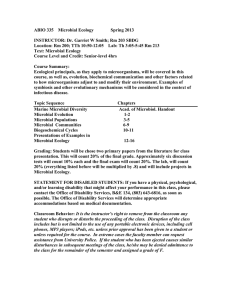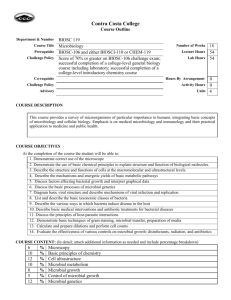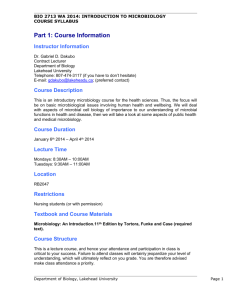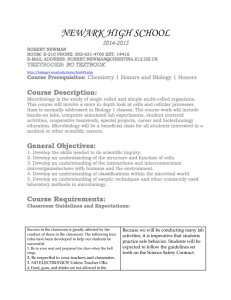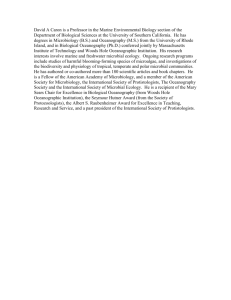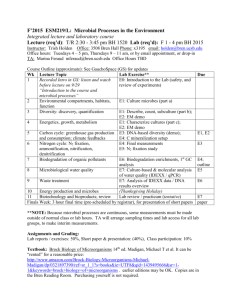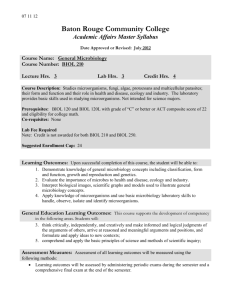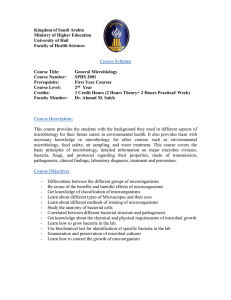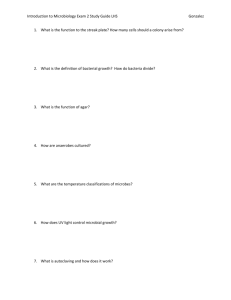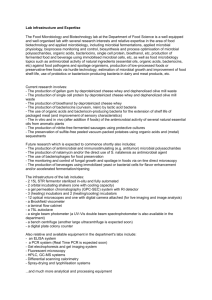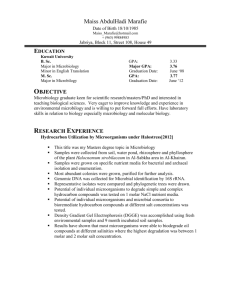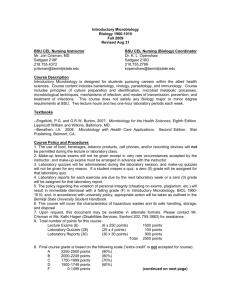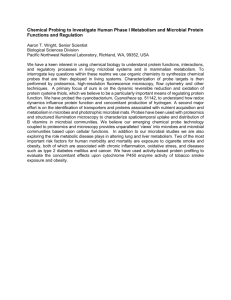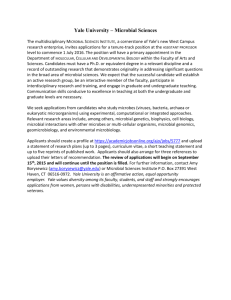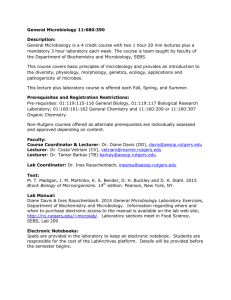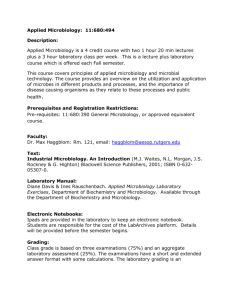BIO 175 GENERAL MICROBIOLOGY COURSE DESCRIPTION
advertisement
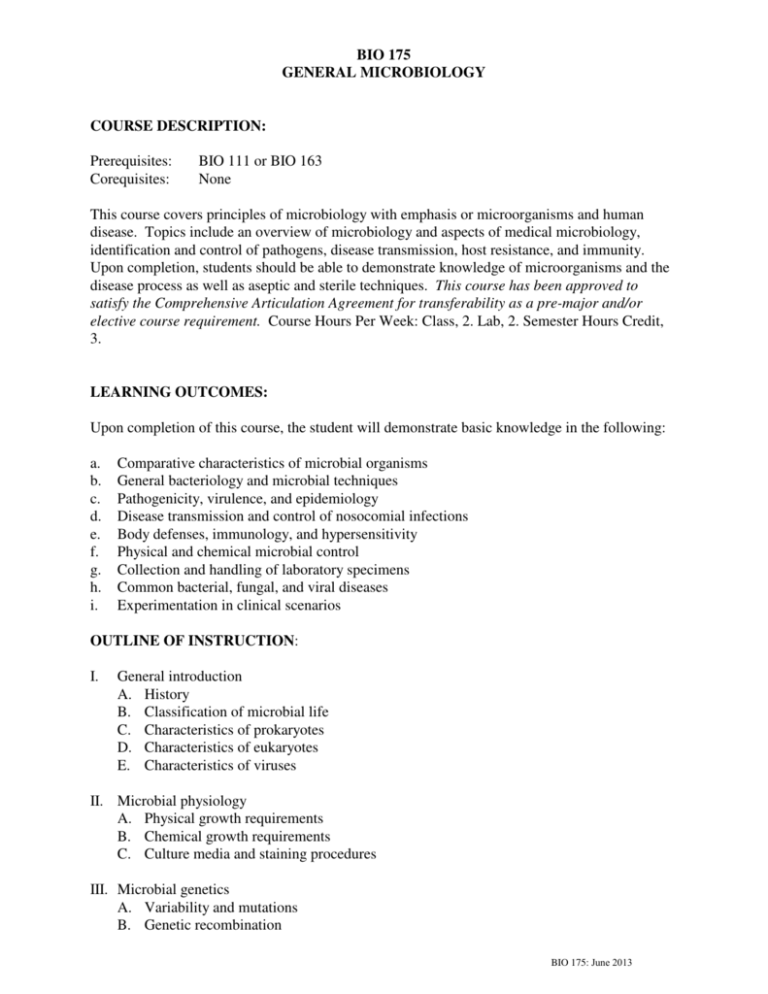
BIO 175 GENERAL MICROBIOLOGY COURSE DESCRIPTION: Prerequisites: Corequisites: BIO 111 or BIO 163 None This course covers principles of microbiology with emphasis or microorganisms and human disease. Topics include an overview of microbiology and aspects of medical microbiology, identification and control of pathogens, disease transmission, host resistance, and immunity. Upon completion, students should be able to demonstrate knowledge of microorganisms and the disease process as well as aseptic and sterile techniques. This course has been approved to satisfy the Comprehensive Articulation Agreement for transferability as a pre-major and/or elective course requirement. Course Hours Per Week: Class, 2. Lab, 2. Semester Hours Credit, 3. LEARNING OUTCOMES: Upon completion of this course, the student will demonstrate basic knowledge in the following: a. b. c. d. e. f. g. h. i. Comparative characteristics of microbial organisms General bacteriology and microbial techniques Pathogenicity, virulence, and epidemiology Disease transmission and control of nosocomial infections Body defenses, immunology, and hypersensitivity Physical and chemical microbial control Collection and handling of laboratory specimens Common bacterial, fungal, and viral diseases Experimentation in clinical scenarios OUTLINE OF INSTRUCTION: I. General introduction A. History B. Classification of microbial life C. Characteristics of prokaryotes D. Characteristics of eukaryotes E. Characteristics of viruses II. Microbial physiology A. Physical growth requirements B. Chemical growth requirements C. Culture media and staining procedures III. Microbial genetics A. Variability and mutations B. Genetic recombination BIO 175: June 2013 IV. Microbial control A. Isolation procedures B. Universal precautions and CDC guidelines C. Physical control D. Chemical control E. Antimicrobial drugs V. Pathogenicity and epidemiology A. Resident and normal flora B. Mechanism of pathogenesis C. Basic factors of epidemiology D. Portals of entry and exit E. Transmission chains F. Vectors and reservoirs G. Nosocomial infections VI. Host defenses A. Nonspecific resistance B. Specific immune resistance C. Disorders in immunity VII. Microbial diseases A. Diseases of the respiratory tract B. Diseases of the gastrointestinal tract C. Diseases of the genitourinary tract D. Diseases of the nervous system E. Diseases of the skin F. Diseases of the blood and lymph REQUIRED TEXTBOOKS AND MATERIALS: To be selected by the Instructor/Discipline Chair. STATEMENT FOR STUDENTS WITH DISABILITIES: Students who require academic accommodations due to any physical, psychological, or learning disability are encouraged to request assistance from a disability services counselor within the first two weeks of class. Likewise, students who potentially require emergency medical attention due to any chronic health condition are encouraged to disclose this information to a disability services counselor within the first two weeks of class. Counselors can be contacted by calling 919-536-7207, ext. 1413 or by visiting the Student Development Office in the Phail Wynn Jr. Student Services Center, room 1209. BIO 175: June 2013
